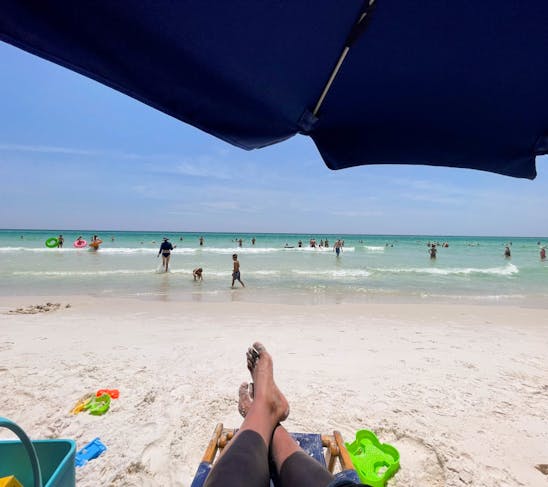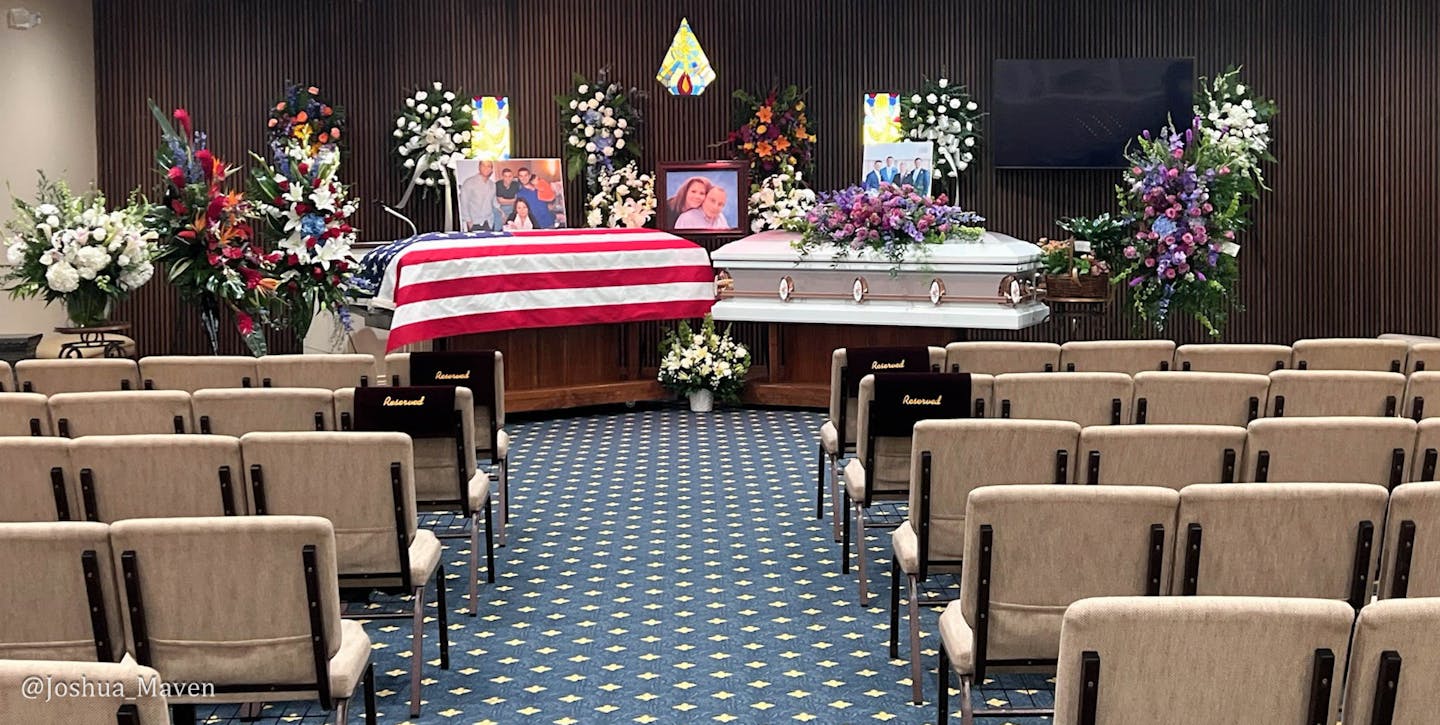It’s Friday, July 11, 2025, and I just completed my second French lesson of the week. I’ve been working with an online tutor for the past six months in hopes of communicating with my 22-month-old son as he advances in his mother’s native tongue. I’ll be honest, learning a new language has proven quite the challenge. My tutor insists that I’m making progress, but it rarely feels that way to me.
One thing’s for sure. If I expect to speak fluent French one day, I'll have to commit myself to the process. That means working at it as often as possible. I guess the same could be said of writing a book. The only problem is that I haven’t written, or thought much about writing, since the death of my parents almost eight months ago.
My parents and I had a loving relationship for most of my life. As a rebellious teen, however, not so much. Back then, I was searching for my own identity, and the restrictions that came with living under their roof only made things worse. It’s one of the reasons I went to college out of state: to do my own thing, my way, as far away as possible.
It would take the next five years of living alone for me to realize what I had left behind. In retrospect, my feelings toward my parents at that time in my life had less to do with how I saw them and more to do with how I saw myself; or rather, didn’t see myself. I was an insecure brat with a bad attitude and an untamed tongue, which got me into trouble more times than I’d care to admit.
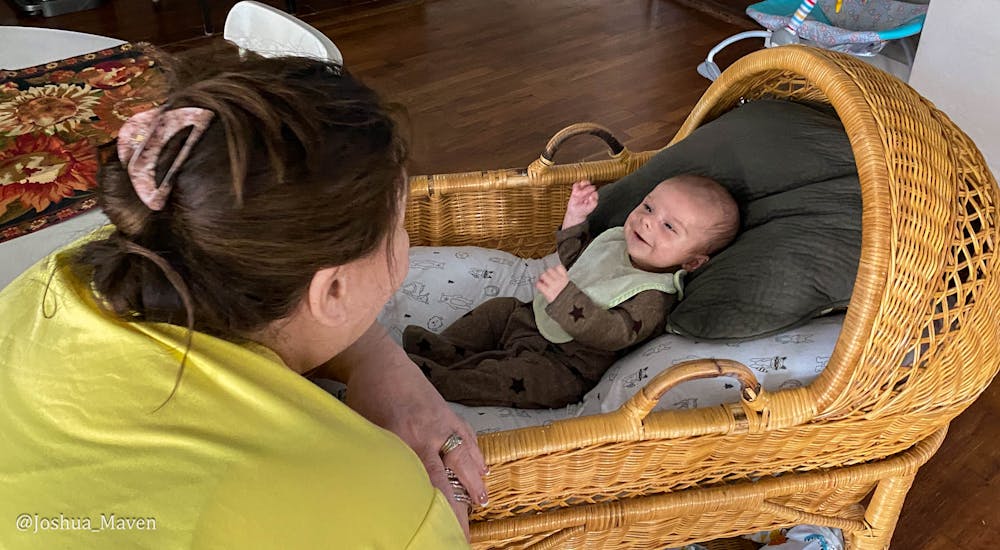
Fast forward 20 years to November 2023. My wife and I had recently welcomed a baby boy named Samuel into the world, and my parents were in town to meet him over the Thanksgiving holiday. On a few occasions, while interacting with Samuel, I remember looking over to find my mother staring at me with a big smile on her face. She could tell that I was happy, and my happiness made her happy, too. Unfortunately, that was the last holiday I would ever spend with my parents.
When my parents downsized houses the year before, my wife and I dug up two small banana plants from their property and planted them in our yard. We even named the plants Gene and Mary after them. Sadly, after a harsh winter, one of the plants died. The following spring, whenever I saw the lonely survivor, I couldn’t help but wonder if it was Gene or Mary I was looking at. Worst of all, I feared deep down that the loss of the plant was a sign that I would lose one of my parents next.
In my novel, one of the main characters, a peregrine falcon named Tallie, has intimate relationships with various plants. Tallie is a doctor, or herbalist; to her, trees, plants and flowers are living, breathing beings, capable of providing life through their medicines. She talks, listens, and interacts with them the same way she would a friend.
I recently came across a video on the internet of a woman who was talking to a tree, gently asking it to lift its leaves and touch her face. Little by little, the video shows the leaves extending outward until a connection is eventually made. Some of the comments said the leaves moved because of the wind; others insisted there was someone off-screen manipulating one of the branches; a few even claimed it was AI, but those who know, know.
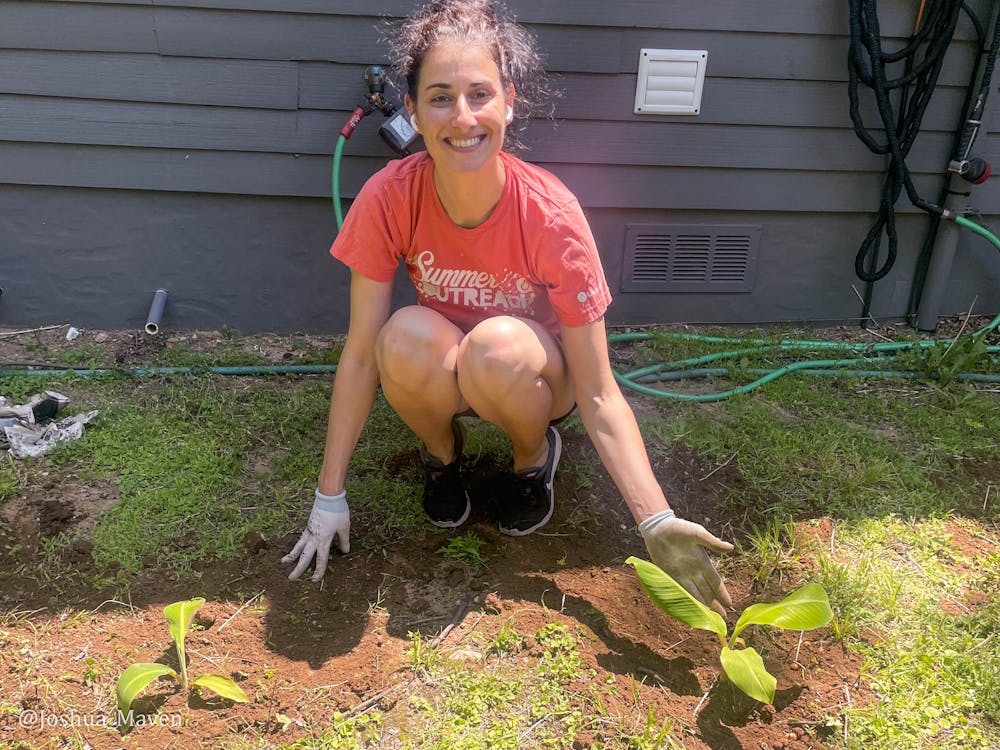
Next to my banana plant at home is a wrought iron bench, where I often sit when I’m thinking about my parents. Sometimes, I’ll take a few minutes to chat with the plant, ask about its day, or simply hold my hand out and wait for it to respond. When it does, the feelings and emotions that follow fill the empty parts of my heart long enough for me to focus on the future instead of the past.
Before my parents died, I hired an editor to review the first half of my novel. Her feedback was mostly positive compared to what I received in 2017 after completing my initial draft. In her comments, the editor referenced a book called “Save the Cat! Writes a Young Adult Novel.” It’s a guidebook that argues that most bestsellers follow a 15-step blueprint that include an Opening Image, Midpoint, and Final Image.
The Midpoint, for example, is, you guessed it, the middle of the novel. Also known as the Crossroads, or the Turning Point, the Midpoint raises the stakes of the story by pushing the hero toward real change. Oddly enough, I can’t help but feel that the loss of my parents marks the Midpoint in my personal journey. These last eight months have forced me to reconsider my needs as I move into the second half of my life. During that span, I wrestled with former life choices, came to grips with my own mortality, and even questioned my spirituality at times.
Many would consider what I just described as a midlife crisis, but I see it as something else, entirely: a midlife revival. Moving forward, similar to the hero in my novel, I must answer some important questions: What choices do I need to make to bring about real change in my life? What am I willing to risk for my future, for my family’s future, for the future of my novel? Most importantly, what does that change actually look like? Is it a change of address, a change of jobs, a recommitment to my faith?
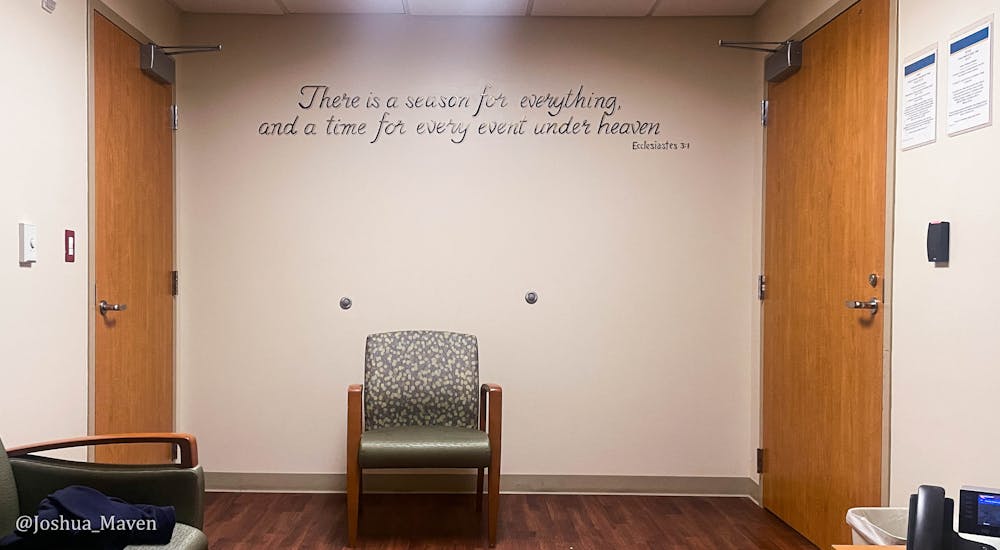
The night I learned that my parents were involved in a car accident, I raced to the hospital not knowing what I would find. On the way, I received a call from my brother, who broke the news that our father had passed away and that our mother had been airlifted to the hospital. I was the first to arrive and was taken to a private family room, where I waited all alone, helpless and scared. Painted on the hospital wall in front of me was a Bible verse from Ecclesiastes 3:1 that said, “There is a season for everything and a time for every event under heaven.”
I’ve thought about that scripture a lot since that night and have realized that life is nothing more than seasons of sowing and reaping. Harvests don’t exist without seasons of toil. That principle extends to the farmer as much as it does to the person learning a new language or attempting to write a book. It also extends to relationships, whether that’s talking to a plant, reestablishing old friendships, or rebuilding a personal relationship with God.
My wife and I recently took Samuel on a summer vacation to France. The trip allowed me to practice my French and Samuel to spend some quality time with his grandparents. Personally, I never knew my grandparents on my father’s side, and it breaks my heart to know that my son won’t either. In the wake of their deaths, it’s important that he spend as much time with his French grandparents as possible. For two weeks, he lived his best life in the French countryside, picking fruits from the garden, swimming, and chasing chickens and cats across the property.
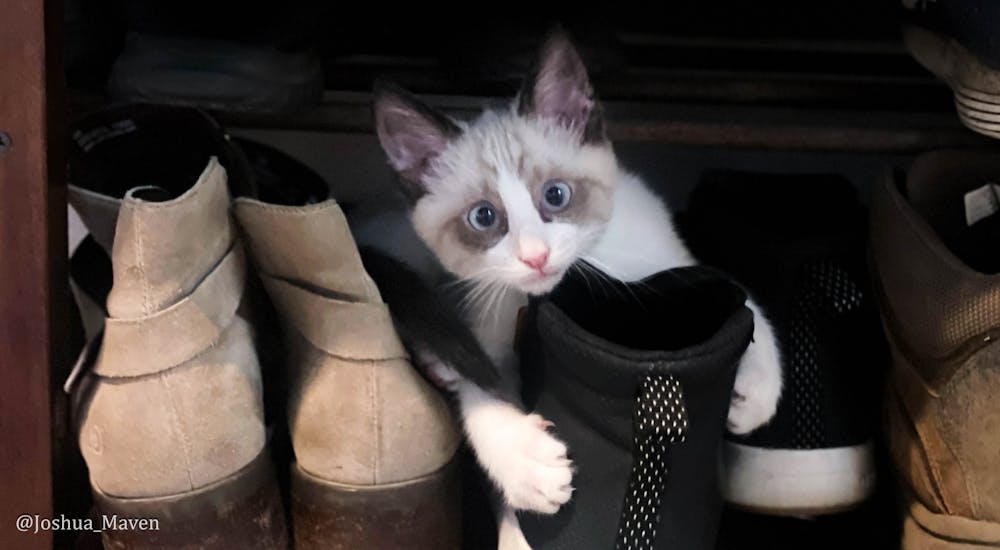
Speaking of cats, I mentioned the name of the guidebook was called “Save the Cat!”. The title comes from the idea that in order to make a hero likeable, an author should have them do something in the story to win over the audience, like save the life of a cat, for example. Ironically, this is exactly what our family did after a beloved neighborhood cat was struck and killed by a car earlier this year. We had called her Duchess because of her beautiful white coat that reminded us of the matriarch in Disney’s classic “Aristocats” movie.
Duchess had recently given birth and was likely looking for food when the accident happened. Despite an earnest search, we never found her kittens and presumed they wouldn’t survive long without their mother. That is, until we received an unexpected call from a neighbor a few weeks later. To our surprise, a litter of three had survived thanks to the help of a surrogate. One of the male kittens, who we have since adopted and named Mellow, even has the telltale white coat as his mother. Two fatal crashes, two families connected through tragedy, and two seasons of loss and life.
As if that wasn't enough, I'll leave you with one final thought, or image, as the guidebook suggests. Do you remember my lonely banana plant? Well, it’s no so lonely anymore. I was recently working out back and noticed an offshoot, also referred to as a pup, growing from its base. Once the pup is tall enough, it can be separated from its mother and replanted on its own. Only then will it grow to reach its full potential.
Follow me on Instagram at @Joshua_Maven or @HonchotheVan, on Twitter @MaventheRaven or Facebook at Facebook/TheLastImperial.
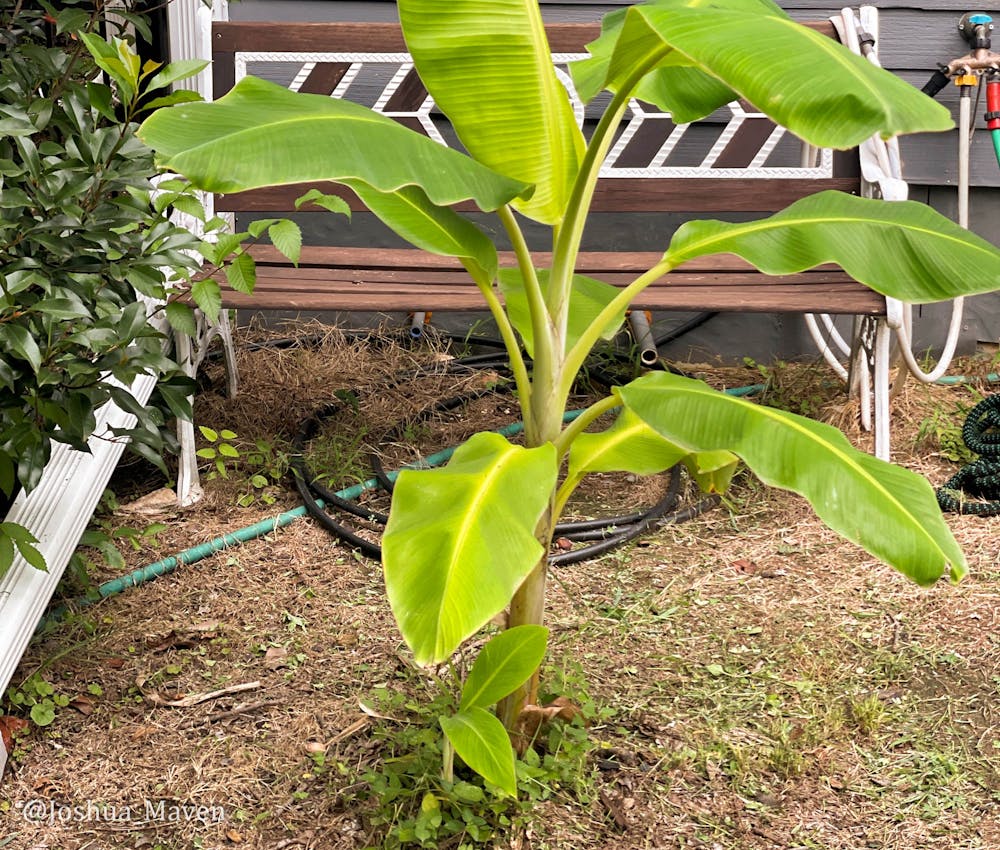
Midlife Revival
It’s Friday, July 11, 2025, and I just completed my second French lesson of the week. I’ve been working with an online tutor for the past six months in hopes of communicating with my 22-month-old son as he advances in his mother’s native tongue. I’ll be honest, learning a new language has proven quite the challenge. My tutor insists that I’m making progress, but it rarely feels that way to me.
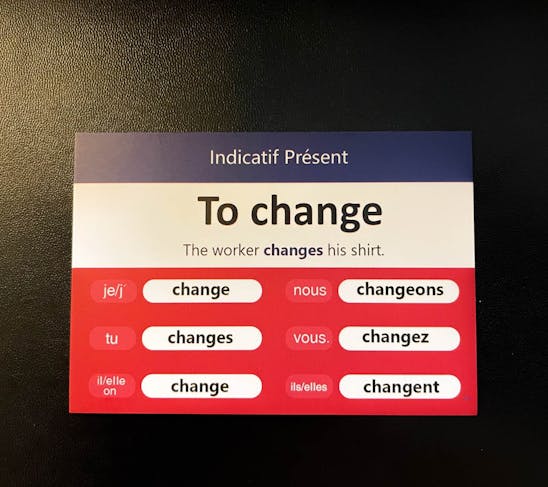
Postcards to Samuel
It's 8:00 p.m. on Wednesday, July 31, 2024, and I'm trying something a little different with this post. Instead of my usual blog format, I compiled a series of postcards that I wrote to my 10-month-old son, Samuel, during a two-week road trip I recently took to the Great Lakes. I plan to give him these postcards, along with others from future trips, when he's older in hopes that they will inspire him to chase his own dreams, whatever those might be.
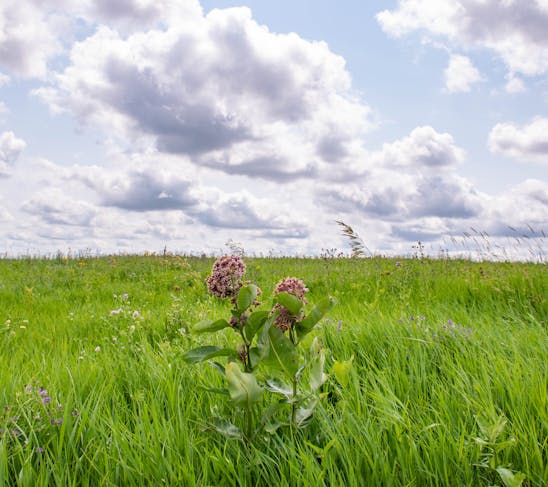
False Summit
It’s 12:00 p.m. on Sunday, July 30, 2023, and I’m lounging at the beach enjoying the white sands and green waters of Florida’s Emerald Coast. Today is my 40th birthday and a relaxing getaway is exactly what I needed after a two-week road trip out west, where I hiked the highest peaks of Colorado and Arizona. The reasoning behind my latest excursion was simple: if I’m going to be “over the hill,” then I might as well be standing on top of a mountain.
